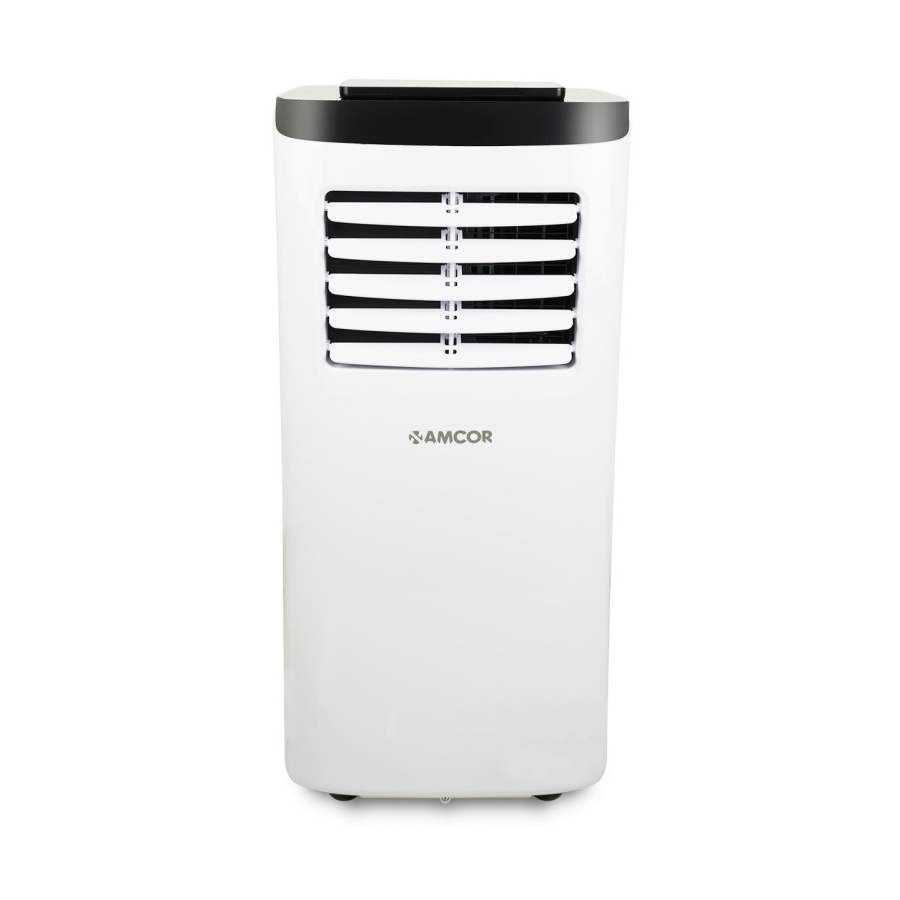
- 1. Table of Contents
- 2. Safety Instructions
- 3. Parts
- 4. Installation
- 5. Features and Operation
- 5. Features
- 5. Operation
- 5. Remote Control
- 5. Multi Protective Function
- 6. Emptying the Water Container
- 7. Maintenance
- 7. Cleaning
- 7. End of Season Maintenance
- 8. Troubleshooting
- 9. Appendix
- 10. Technical Data
•
If the appliance is installed, used or stored in an unventilated room, the room
must be such as to prevent stagnation of possible leaks of refrigerant gas as
there could be a danger of fire or explosion should the refrigerant come into
contact with electric heaters, stoves or other sources of ignition.
•
Refrigerant gas may be odourless.
•
Do not use the product and contact the retailer for advice, if damage has
occurred to the unit which may have compromised the refrigerant system.
•
Any repairs or maintenance must only be carried out on the unit by a suitably
qualified engineer. Before opening and servicing the unit the authorized engineer
must be in possession of a copy of the manufacturer's service manual and must
follow the safety information contained within it to ensure all hazards are
minimized.
•
The refrigerant system should not be perforated or punctured.
Energy Saving and Unit Safety Protection Tips
•
Do not cover or restrict the airflow from the outlet or inlet grills.
•
For maximum performance the minimum distance from a wall or objects
should be 50cm.
•
Keep the filters clean. Under normal conditions, filters should only need
cleaning once every three weeks (approximately). Since the filters remove
airborne particles, more frequent cleaning maybe necessary, depending on
the air quality.
•
For the initial start up set the fan speed to maximum and the thermostat to 4-
5 degrees lower than the current temperature. After, set the fan switch to low
and set the thermostat to your desired setting.
•
To protect the unit we recommend not using the cooling function when the
ambient temperature is higher than 35
•
R290 refrigerant gas complies with European
environmental directives.
•
R290 has a low GWP (Global Warming
Potential) of 3.
•
The air conditioner contains about 130 g of
R290 refrigerant gas.
•
Do not use or store in an unventilated space
with an area smaller than 6.3m
room must be such as to prevent stagnation of
possible leaks of refrigerant gas as there could
be a danger of fire or explosion hazard should
the refrigerant come into contact with electric
heaters, stoves or other sources of ignition.
o
C.
Page 4 of 15
2
per unit. The
